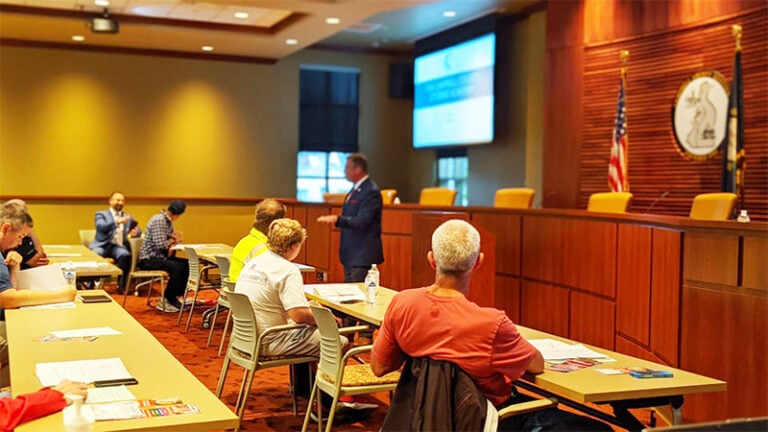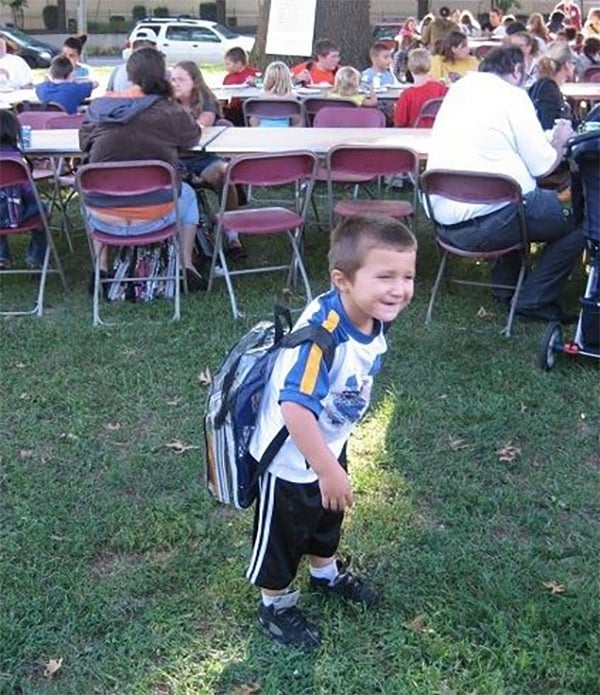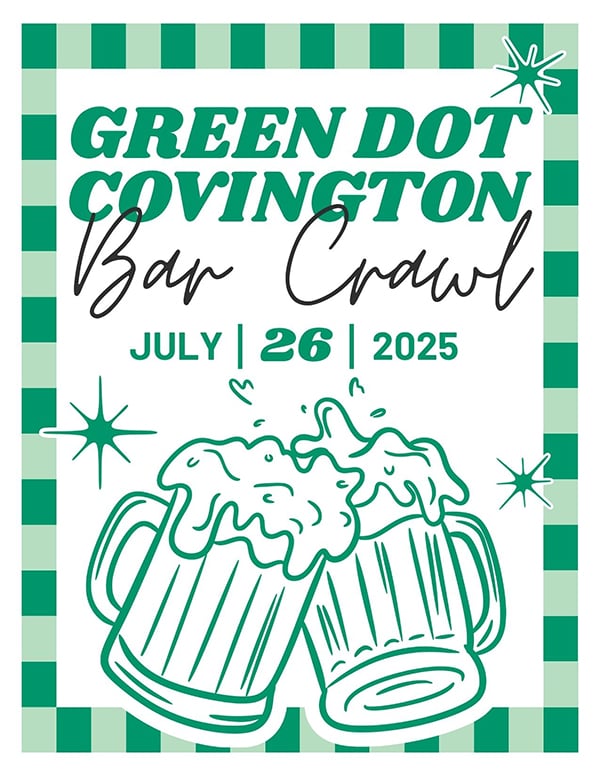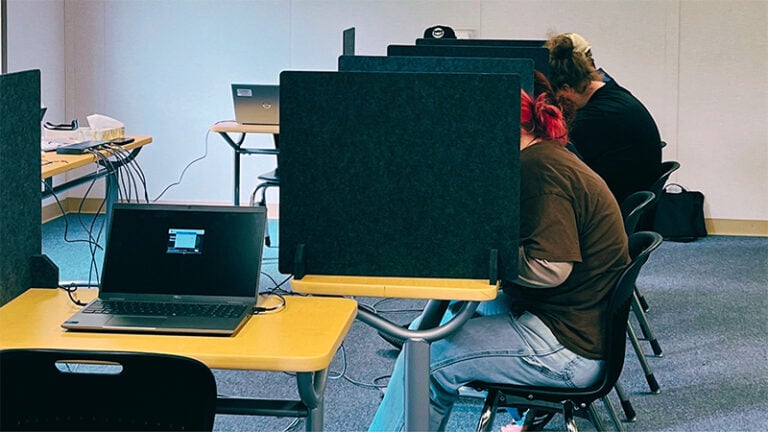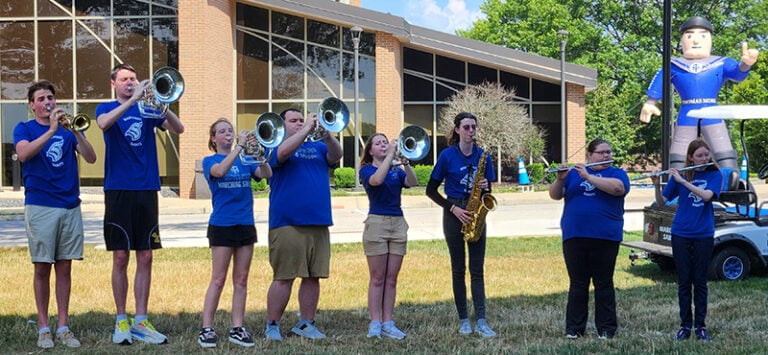Author’s note: Bob Hardy, who died last weekend, was one of my earliest sports heroes. He was the Kentucky Wildcats’ quarterback from 1953-55, making him Paul “Bear” Bryant’s last UK quarterback and Blanton Collier’s first. Late in his life, he made a remarkable comeback from Parkinson’s Disease, and that was mainly the reason he asked me to help him write a book about his life. Unfortunately, the book was never published due to a messy divorce. This chapter is about his sophomore season.
Heading into the 1953 season, Coach Paul “Bear” Bryant was entering the prime of his career. He was still young and virile enough to hunker down in practice and demonstrate blocking and tackling techniques. He was the hottest young coach in the nation, but he still was unhappy about the one goal he had failed to achieve. In seven games against Tennessee, Bryant was 0-5-2. And you can bet he didn’t take any pleasure from the ties, considering his famed quote about tie games being like kissing your sister.
Being the competitor he was, Bryant probably was disappointed that Tennessee’s legendary coach, Gen. Bob Neyland, had retired after the 1952 season. At that time, Neyland was the standard by which SEC coaches were measured. The new Vols’ coach, Harvey Robinson, was a virtual unknown. Beating Robinson wouldn’t be as satisfying as beating Neyland, but losing to him would be a huge blow to Bryant’s ego. To claim supremacy in the SEC, Bryant needed to beat the Big Orange.
During another grueling trip to Millersburg and on through the rest of preseason practice, Bryant still couldn’t find the right quarterback. He took another look at Herbie Hunt and Dick Shatto. Steve Meilinger was still an option, although Bryant wanted him to play end. Hardy knew the offense better than anyone, but Bryant seemed not to pay much attention, perhaps because Ermal Allen, his offensive coach, had convinced him that Hardy wasn’t fast enough to run the Split-T.
“There was never any question in my mind that I could do the job,” Hardy said. “But there was a helluva question in Ermal’s mind.”
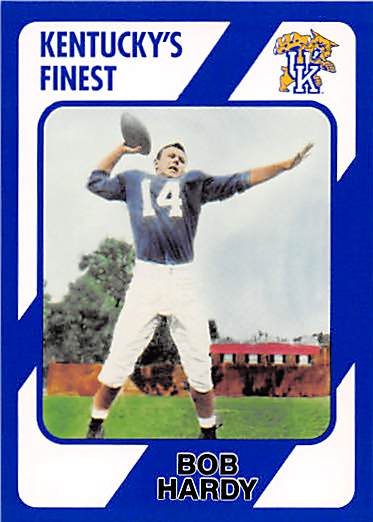
On Sept. 19, the Wildcats opened the season at home with a 7-6 loss to Texas A&M. A week later, they went to Mississippi and got drilled, 22-6. For the first time in his coaching career, Bryant was 0-2. His offense was miserable. Obviously, something drastic had to be done.
“On the Thursday before the second (Ole Miss) game, I was so frustrated that I got into a fight with one of the tackles in practice,” Hardy said. “On the Monday after that second game, there was a note waiting for me in the chow line to go see Coach Bryant. I went to his office and he said, ‘You have not done much since you have been here…I am going to start you Saturday and if we don’t win, I think you ought to back your bags and go on back to Paducah.’ When I told my teammates, I said, ‘If you guys don’t like me, why don’t we get our asses beat Saturday because if we win, I get to say.’”
The third opponent, under the Stoll Field lights on Saturday, Oct. 3, was a formidable Florida team coached by Bob Woodruff and led by All-American fullback candidate Rick Casares. The previous season, the Gators had routed the Wildcats 27-0 in Gainesville. In addition, the Gators came into the game leading the nation in pass defense. Many in the crowd recognized Bryant’s decision for what it was.
“They had run out of quarterbacks,” Hardy said. “They didn’t have anybody else. Bryant had no other choice.”
Amazingly, Hardy threw two touchdown passes in the first half, one to end Larry “Dude” Hennessey and another to halfback Dickie Mitchell, and the Wildcats used that as the springboard to a 26-13 victory. Although Herbie Hunt played some quarterback in the second half, tossing two TD passes to sophomore Howard Schnellenberger, Bryant knew that Hardy was his man. For the game, Hardy completed seven of 10 passes for 131 yards and was named the SEC Back of the Week.
Asked why he had started Hardy, Bryant said, “Frankly, on that long ride from Oxford back to Memphis, I had decided on another quarterback, but it was not Hardy. However, during practice on Tuesday and Wednesday, he moved the football better than the rest, and, in sort of a desperation move, I decided to give him his chance.”
Next up was 14th-ranked Louisiana State in Baton Rouge, probably the toughest place in the league for a visiting team. Late in the game, with the scored tied 6-6, Hardy completed a pass to Joe Platt, who got knocked out of bounds at the LSU three-yard line. Mistakenly thinking the Wildcats were behind 7-6, Bryant replaced Hardy with Hunt. The idea was for Hunt to run two specific plays, and then, if they failed, Hardy would come back in for the last two downs. The trouble is, Bryant had forgotten a new substitution rule that meant Hardy couldn’t be sent back in on that series.
“The first two plays didn’t work,” Hardy said. “He had his hand on my shoulder pad and he told me to go in the game and score. I said, ‘I can’t, I’m dead.’ He threw me right over the telephone table and did not even know he had done so. Needless to say, the last minute was total confusion and we did not score.”
Bryant did realize that UK had earned a tie instead of loss until after he had chewed out the team and was back at the hotel, taping a show with J.B. Faulconer, one of UK’s several radio play-by-play announcers.
“When he mentioned the tie,” wrote Bryant in his autobiography, “I jumped about four feet. I called Gaynell Tinsley, the LSU coach, and asked him what the score was. He said, ‘You drunk this quick?’”
With Hardy at quarterback, throwing to a strong receiving corps that included Meilinger, Schnellenberger, and Hennessy, the Wildcats went on a five-game winning streak (Mississippi State, Villanova, Rice, Vanderbilt and Memphis State) for a 6-2-1 record heading into the final game, which was against Tennessee on Nov. 21 at Stoll Field. In their first season under Robinson, the Vols were 5-2-1 with games remaining against UK and Vanderbilt.
“They used to kid me in the office,” Bryant wrote, that anytime Tennessee was mentioned during a coffee break, I had to excuse myself and be sick. They weren’t far wrong. I lost my breakfast regularly before the Tennessee game. Everybody thought Neyland had a jinx on us. It was no jinx. He was a better coach, and he had better football players – and I couldn’t stand it.”
Instead of working the team harder before the Tennessee game or dramatically changing his strategy, as he had previously done in his frenzy to beat Neyland, Bryant tried a different tactic before the 1953 battle.
“For the first time,” recalled Jim Profitt, “Coach Bryant took the pressure off. He came out the day before the game in his game and took off his suit coat and loosened up his tie. He said, ‘Proffitt, come over here. Put the ball down here. I’m gonna kick you an extra point. If you can make the extra point, I’ll buy you a hat at Graves-Cox.” Then he called Ray Correll over. He called Steve Meilinger over. We all laughed and had fun. He tried to kick it, and, heck, he’d make one and then miss one. Everybody was really loose. He said, ‘Aw, hell, y’all don’t need any more. Go on in.’”
Bryant even kicked a few extra points left-footed, amazing his players. But what they didn’t know was that the Bear had a little Titanic Thompson in him. Years earlier, during his playing career at Alabama, he and the great Don Hutson had bet ice-cream cones before practice on who could make the most extra points kicking left-footed. After the game, Bryant was proud of his change in psychology.
“It loosened them right up,” Bryant said. “First time I had seen a smile before a Tennessee game in eight years.”
Nevertheless, the Wildcats trailed, 21-20, heading into the fourth quarter. Although UK at the time had three Hall-of-Fame play-by-play announcers – J. B. Faulconer (Ashland Oil network), Claude Sullivan (Standard Oil network), and Cawood Ledford (WLEX) – Bryant’s memory of the winning play was worthy of any.
“We had it on the 40-yard-line with time running out, and Bob Hardy, our quarterback, stumbled coming back to make a handoff. He turned it into one of the greatest players I ever saw. Somehow he got it to the fullback, Ralph Paolone, and Paolone broke through the line, reversed his field, and an official got in the way of three Tennessee players. They went down in a pile and Paolone went all the way. We won, 27-21.”
The Tennessee bench hotly contented that Hardy’s knee had touched the ground before he got the ball, but the officials refused to reverse their call (in those days, of course, there was no TV and, hence, no instant replay). But although the play and extra point gave UK a 27-21 lead, the angry Vols had one last chance. In those days of single-platoon football, Hardy was playing defensive back.
“Tennessee tried to pass and I intercepted it,” Hardy said. “All we had to do was kill the clock, so I’d take the snap from center and plunge into the line. I got my nose pulled away from my face on the last play by (Vols’ linebacker Charley Coffey). Coach Bryant hugged me and I bled all over him. It was the most scared I’ve ever been. There must have been 10,000 people on the field screaming and grabbing. The state troopers like to have never got us out of there.”
In the midst of the locker-room celebration, UK assistant coach Jim Owens, later the head coach at Washington, put his arm around Hardy and said, “I hope your knee did touch the ground – I’d rather f— ‘em than beat ‘em.”
Even Ermal Allen had to congratulate Hardy for turning the team around.
“Ermal was a smart, smart guy and a good athlete,” Hardy said. “He was a good football player at UK and he won the Kentucky Amateur championship in golf. He was a competitor from the word go. He just got down on me.”
On the trip home, Hardy sought out the company of Jimmy and Muriel Stephens, his benefactors from Paducah. “No one ever loved me better than Muriel Stephens,” he said. “After the Tennessee game, she sat with me for four hours because I could not stop crying. I still remember the pressure relief…Bryant pressure…win or go home.”
So after an 0-2 start, the Wildcats went 7-0-1 with Hardy at the controls and seemed headed for another date in the prestigious Cotton Bowl. However, when Rice defeated Baylor on Nov 28 to wrap up the Southwest Conference’s automatic bid to the Cotton Bowl, the bowl decided to invite Alabama instead of UK because the Wildcats had defeated Rice, 19-13, earlier in the season. But the Gator Bowl badly wanted UK so Bryant called an early meeting the Friday after Thanksgiving in the dining hall were the players ate.
“I bet the Gator Bowl is the last time Bryant ever let his players vote to see if they wanted to go to a bowl,” Meilinger told historian Jim Bolus. “We were all there at 7:30 and he cam in, had a telegram in his hand and showed it to us. He said, ‘Now this is an offer for us to play in the Gator Bowl. We had a good year. We can continue doing so. I’m going to leave the room. Now you two fellows get up here and take a vote and let me know what you want to do.’ At the time, the doors in the cafeteria were big and wide, and in order to get out you had to pull the doors open and into the room and then walk out. So he walked out.”
The “two fellows” were senior co-captains Tommy Adkins, a center, and Ray Correll, an all-conference guard from Somerset. Both knew the seniors didn’t want to go to the Gator Bowl because they well remembered the brutal practices through which Bryant put them before the 1951 Cotton Bowl. So when Adkins asked, “How many centers want to go?,” nobody put up a hand. And when Correll asked the same thing of the guards, he got the same non-response. So they stopped voting and told whoever was sitting nearest the door to tell Bryant to come back in.
“Well, it didn’t take long for you to vote,” Bryant said.
“No, coach,” said Adkins, “we’re not going.”
“Coach Bryant got red in the face,“ Meilinger said, and his last words were, “Don’t forget – we have spring practice coming up.’ And when he tried to walk out of the cafeteria, he tried to push the door rather than pull it. Everybody thought he was going to try to walk through the door. That’s the honest-to-God truth. And finally, when he left, he slammed the door. All the guys who were coming back and had spring practice were thinking that they were going to really get it.”
(Note: Hardy led the Wildcats to two more wins over the Vols. The 1953 win over Tennessee was Bryant’s last game as Kentucky’s head coach.)
Billy Reed is a member of the U.S. Basketball Writers Hall of Fame, the Kentucky Journalism Hall of Fame, the Kentucky Athletic Hall of Fame and the Transylvania University Hall of Fame. He has been named Kentucky Sports Writer of the Year eight times and has won the Eclipse Award twice. Reed has written about a multitude of sports events for over four decades, but he is perhaps one of media’s most knowledgeable writers on the Kentucky Derby









